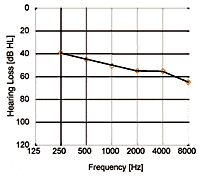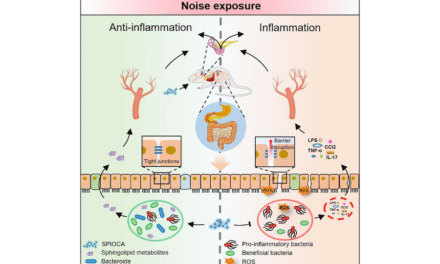12-14-2006
A survey released at the AARP Life@50+ Conference by The EAR Foundation, Nashville, Tenn, and Clarity®, Chattanooga, Tenn, reveals that hearing loss has become a serious health issue for aging Baby Boomers—impacting their work and home lives—yet most are not seeking help.
This survey is the second phase of a widely publicized study conducted in 2004 by The EAR Foundation and Clarity® that indicated nearly half of the 76 million Baby Boomers in the U.S. are experiencing some degree of hearing loss—more widespread than previously estimated.
The new survey not only confirms the prevalence of hearing loss among Baby Boomers, it reveals that hearing loss is significantly impacting their lives at work, home and while traveling and is affecting men much more than women (62% to 38%).
Some key findings:
• Almost one-fourth (23%) of these individuals said their hearing loss is affecting their success in the workplace, while 25% said hearing loss is affecting their earning potential. The areas of their work that are most affected are hearing and understanding phone calls and conversations with co-workers.
• 40% of the individuals who reported having a hearing loss said that it has affected their home life in many ways, such as having conversations with loved ones. 65% said they have trouble hearing the television. Watching TV with others and social gatherings are the areas that Boomers with hearing loss avoid most.
• More than half (57%) of those with a hearing loss said they often have difficulty hearing on a cell phone.
“Hearing loss is a silent health issue, often overlooked and left unresolved,” said Suzanne Wyatt, executive director of The EAR Foundation. “This survey illustrates how hearing loss is compromising the quality of life for millions across the country, as well as impacting their performance and productivity on the job. Individuals, businesses and the government must become more attuned to the seriousness of hearing loss in our society and the steps they can take to help improve the situation.”
The survey shows that most people who are having difficulty hearing are not taking the necessary steps to visit an audiologist, have their hearing tested and/or seek treatment. Only 26% of those who said they have difficulty hearing have actually had their hearing loss formally diagnosed by a medical professional.
Furthermore, 37% of the individuals said they have not even had their hearing tested. Only 42% of those who reportedly have a severe hearing loss wear hearing aids.
“Unlike when someone is losing their vision and they realize they can’t see as well as before, hearing loss can be blamed on others for not speaking clearly or setting the TV volume too low,” said Carsten Trads, president of Clarity, a leading supplier of solutions for the hearing loss community. “As a result, people with a hearing loss often avoid getting their hearing tested or exploring solutions, like hearing aids or amplified telephones, for seven to 10 years.”
The survey also examines why these individuals are not seeking solutions. According to the report, less than one-fourth (23%) who have been told by their doctor that they should wear a hearing aid actually wear one. One-third (32%) indicate that they do not wear a hearing aid because of cost and/or the fact that the devices are not covered by Medicare, Medicaid or private insurance carriers.
For many individuals with a hearing loss, the workplace is a very difficult environment. The survey reveals that one-fourth of those who have difficulty hearing said it affects their work. Furthermore, one-fourth said their hearing loss has had an impact on their earning potential.
“Hearing loss can have a significant impact on productivity in the workplace,” commented Wyatt. “From conversations with coworkers to conference calls, it is an obstacle at work for many people. To keep this talent in the workforce—especially the aging Baby Boomers—companies should look to help their employees.”
Phone calls (64%) and conversations with co-workers (61%) are the areas most impacted by hearing loss, reports the survey. Despite the problems this creates at the workplace, the survey indicates that fewer than 5% have actually asked their employer for help regarding their hearing loss.
“Solutions like amplified telephones and other communication devices are available to employers,” continued Trads. Employers should realize these solutions can dramatically improve the productivity of their employees. Likewise, employees need to request these solutions from their employers. It is a win-win situation for the entire company.”
The survey also reveals that hearing loss is significantly impacting Baby Boomers at home. Two-thirds said they have some trouble hearing the television. Meanwhile, most (75%) said they find themselves in situations where people are not speaking loudly enough or clearly enough or where the TV is not loud/clear enough for them.
“People with a hearing loss often isolate themselves,” said Wyatt. “Watching TV with others in the room and social gatherings are situations that they avoid, because it can be very exhausting and arduous. Isolating yourself from others is not the answer. We hope the results of this survey will compel more individuals to visit their doctor’s office and have their hearing checked.”
For people with a hearing loss, cell phones are also problematic. The survey reports over one-half (57%) of Boomers with cell phones said they have trouble using the phone because of their hearing loss. While many people without a hearing loss have trouble with networks and background noise, the survey reports that 30% of those with a hearing loss said the problem is mostly their hearing.
“Cell phone technology has vastly improved in recent years, yet these advancements largely involve added features like cameras or MP3 players,” said Trads. “The actual sound quality of a cell phone still lags behind. This creates significant problems for someone with a hearing loss who already has difficulty with telephone conversations and then must deal with poor reception and sound quality on a cell phone.”
Forty percent of those who have problems hearing on cell phones said they would probably use their cell phone more often if they could hear conversations more clearly when using it.
The survey indicates that Baby Boomers are aware of solutions that can help improve hearing. Ninety-seven percent are aware of hearing aids, while 73% are aware of amplified telephones. However, most of these individuals are not acquiring these solutions.
“Technology has dramatically changed the landscape for people with a hearing loss,” said Trads. “From hearing aids to cell phone amplifiers to TV listening devices to traditional amplified telephones, the list of solutions goes on. Family members and friends should help their loved ones by having them visit hearing health professionals, such as audiologists, who can then point them in the right direction.”
The research was conducted by an independent research company, Prince Market Research, a member of the Council of American Survey Research Organizations. The research methodology was designed to ensure that the results are accurate within a margin of error of plus or minus 5% at a 95% confidence level. To access the full report, visit: www.clarityproducts.com/boomer.
[SOURCE: Clarity, November 2006]




